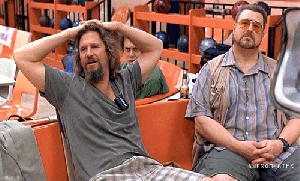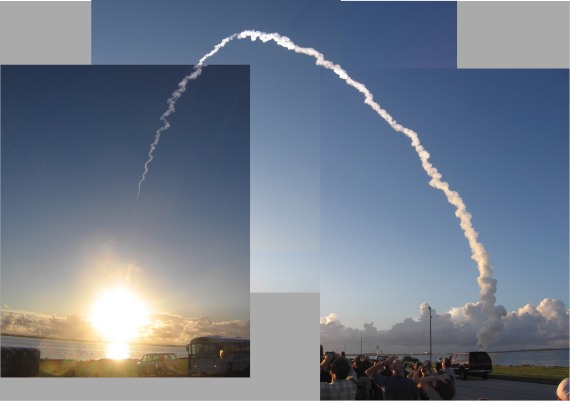Welcome to Advanced Placement United States History! In order to help us get the most out of this class and to provide a cushion for your grade as you transition from covering ONE semester of college level material (as you covered if you took AP European history or regular World History), to covering TWO semesters worth of material, I have created this summer assignment for some sizeable EXTRA CREDIT.
I’ll say it again, this is EXTRA CREDIT, but NECESSARY, and will raise your semester 1 grade approximately 3 percentage points. This is a LOT of extra credit. You seriously want to do it.
The purposes are many: First, it will make you familiar with the textbook. Second, it will allow you to raise your grade. Third, it will make you ready for the first test of the year over chapters 1-4 in the second week of school. Fourth, we will be glad to have covered this material quickly after our sixth snow day hits next year. This assignment helps us to avoid that problem. Fifth, did I mention it will raise your grade????? I thought so.
In 2011, the Document Based Essay on the AP US history exam was about Richard Nixon, whose presidency was from 1968-1974. MANY AP teachers and students were upset because they did not manage to cover this material in class. We here at PHS did not have that concern, even with the snow days and the tornado, thanks to this assignment and diligent work on everyone’s part.
Now, I am not just tossing you out there to learn this material on your own. First of all, I have a classroom blog, and it is obvious that you were wise and bookmarked it since you are reading this here. Good job! Visit it this site OFTEN! You can use the comments section to study together or ask questions. This blog has categories for each chapter as well as for subtopics and links to review websites. It is designed to help your comprehension and expand my ability to help you on your way to a solid classroom experience and a 5 on the AP exam.
If you look to the right, you will see a box below the quote of the week that lists the last five posts. Below that you will see another box entitled “categories.” You want to use the categories “Beginning of Year” and for Chapters 1-4 right now. I will post things here over the summer to help you get this assignment done.
So this extra credit assignment is due on the third day of school next fall. It needs to be handwritten neatly and legibly, and make sure you do your own work. You are welcome to work together on this assignment, but you cannot copy from your friends. This assignment will not help you if you yourself do not do it.
So please make sure you checked out a book from me before you leave for the summer.
I look forward to seeing you next year!
Leslie Scoopmire, AP US history teacher
Define the terms, explain the significance of the terms, and answer the questions FULLY. This is extra credit, but is necessary.
Here is an example of how to define a term:
Iroquois Confederacy- AKA the Six Nations, a league of related Native tribes (Mohawk, Oneida, Onondaga, Cayuga, and Seneca originally, with the Tuscarora moving into the area from the Carolinas and joining the Confederacy in the 1700s) united by Algonquian language and longhouse religion. They suffered under the competition between their English trading partners and the French and their Indian allies, although officially they attempted to maintain neutrality. At their greatest point they occupied land from Kentucky to Michigan but were most concentrated in upper New York state.
Chapter Study Guides—Semester 1—Scoopmire
Chapter 1 New World Beginnings, 33,000 BC- AD 1769
Identify the historical significance of the following:
Mississippian culture____Anasazi____ Cahokia
Iroquois____L’Anse aux Meadows____Vinland
Ferdinand/Isabella____Christopher Columbus____“sugar revolution”
Taino ____ Treaty of Tordesillas____Tenochtitlan
encomienda____Giovanni Caboto____St. Augustine (FL)
Juan de Onate____Battle of Acoma____Pope’s Rebellion
conquistadores____mestizos____“three sister” agriculture
Juan Ponce de Leon____Moctezuma____Junipero Serra
Ferdinand Magellan____Hernan Cortes____mission Indians
Francisco Coronado____tidewater region____Franciscans
Hernando de Soto____Malinche____“Black Legend”
Vasco Nunez de Balboa____Quetzalcoatl____Hispaniola
Bartolome de Las Casas____maize____Robert La Salle
Mound Builders____Battle of Acoma____Alamo
Pueblo culture____Mound Builders____Norse
crusaders
Be able to explain the following fully:
— What kind of environmental impact did Native Americans have? Why do you think this impact was significantly different from that of the Europeans?
— What was the impetus for European exploration in the 15th and 16th centuries?
— Describe the impact of interaction between Europe and the Americas, including the global effects of the Columbian exchange of plants, and of the introduction of European illnesses into the Americas.
— Describe the system of encomienda. What was the ethical rationale for this system? What were the practical effects of this system?
Chapter 2 The Planting of English America, 1500-1733
Identify the historical significance of the following:
Sir Walter Raleigh____Roanoke Island____Virginia
“surplus population”____charter____Powhatan
“starving time”____“Irish tactics”____1st Anglo-Powhatan War
2nd Anglo-Powhatan War____“three Ds”____Powhatan’s Confederacy
Piedmont____Algonquians____“seminary of sedition”
Barbados Slave Code____Restoration period____Deganawidah
Tuscaroras____Iroquois Confederacy____“soil butchery”
John Smith____John Rolfe____indentured servant
Lord Baltimore____Charles II ____Hiawatha
Lords Proprietors____Savannah Indians____Lord de la Warr
Tuscaroras____Yamasees____James Oglethorpe
Handsome Lake ____John Wesley____House of Burgesses
primogeniture____joint-stock company____Act of Toleration
Virginia Company ____Iroquois Confederacy____proprietorship
Be able to explain the following fully:
–Trace the establishment of the five southeastern English colonies of Virginia, Maryland, Carolinas, and Georgia, outlining their similarities and differences.
— How did the Indians respond to English settlement? What factors prevented them from resisting effectively? What attempts were made by the Indians to overcome this?
— How did English land laws influence the English settlement of North America?
— Outline the beginning of the plantation system and its importation to America. How did colonists deal with the need for labor before slavery became widespread?
— Go to http://www.virginiaplaces.org/regions/fallshape.html on the internet. What is the Fall Line? How did it influence Native American and English settlement?
Chapter 3 Settling the Northern Colonies, 1619-1700
Identify the historical significance of the following:
Anne Hutchinson____William Penn____Sir Edmund Andros
Roger Williams____John Winthrop____“the elect”
William Bradford____John Cotton____predestination
covenant____Separatists____Bible Commonwealth
Mayflower Compact____Puritans____Dominion of New England
Navigation Laws____freemen____antinomianism
Pilgrims____New England Confederation
Fundamental Orders____Quakers____King Philip’s War
“salutary neglect”____Middle Colonies____“bread colonies”
Eurocentrism____the Chesapeake____“Blue Laws”
“Protestant work ethic”____Metacom____“royal colony”
Be able to explain the following fully:
— Describe the three separate regions of English colonies. How did each region differ from the others, and why?
— Describe the Puritan/Separatist drive to establish colonies. How did religious beliefs inform their actions?
–Respond to the following: “Early America was a haven for religious dissidents.”
–Explain the relationship between the mother country and the English colonies, including an explanation of the era of “neglect” and its aftermath. Contrast the New England Confederation with the Dominion of New England.
— Describe the interaction between the English and the Native Americans. How were the Puritans and Quakers different in their relations with natives? Compare English actions with those of the Spanish.
Chapter 4 American Life in the Seventeenth Century, 1607-1692
Identify the historical significance of the following:
William Berkeley____Nathaniel Bacon____headright system
middle passage____Bacon’s Rebellion____“freedom dues”
Royal African Company____Gullah____midwifery
Salem Witch Trials____Halfway Covenant____gentry
the Chesapeake____ “white slaves”____“freedom dues”
House of Burgesses____“Yankee ingenuity”
Be able to explain the following fully:
— Describe the abuses of the indentured servant system. How did the conditions freedmen faced become potentially explosive? How did the headright system exacerbate the frustrations of the freedmen? Why do you think “No slave uprising in American history matched the scale of Bacon’s Rebellion?”
— List the pros and cons of being a woman in the Chesapeake during the 17th century. Why would so few women live to be forty years old? What were the challenges faced by early American families? Explain the statement that “New England invented grandparents.”
— List the factors that made importing African slaves more appealing after 1680. Why did so many slaves have to be imported during the years before 1720? What caused the decline of importation? Describe how cultural interaction influenced both the colonists and the slaves.
— Why did the Puritans face a crisis of faith in the mid-17th century? How did they attempt to deal with this? Evaluate the efficacy of this transition.




You must be logged in to post a comment.